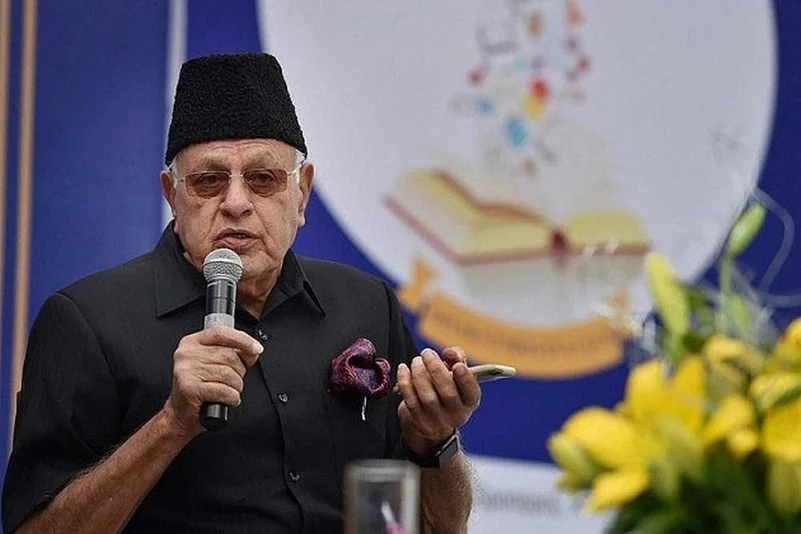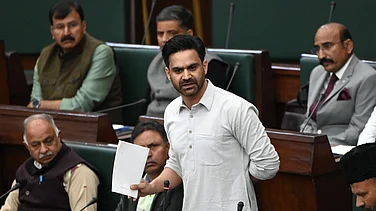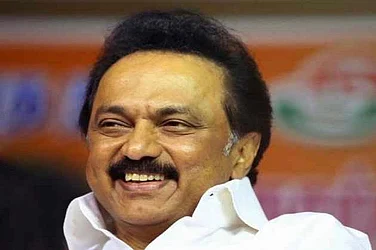As the Election Commission of India (ECI) has set in motion the process to hold assembly elections in Jammu and Kashmir (J&K), National Conference (NC) President and former J&K Chief Minister Farooq Abdullah on Friday batted strongly for collectivism and better coordination at all levels in the party to fight a multi-front battle in the state.
Elaborating on the multi-front battle, Farooq said, "On one front, we have to strive for an atmosphere, where basic needs of our people, including development and job creation, are addressed. On the other front it has to keep up its peaceful and constitutional fight for the restoration of people's abridged rights."
He also exhorted party functionaries to amplify their efforts to reach out to wider sections of society across the Union Territory.
"As far as the NC is concerned, it is set to fight a multi-front battle," said Abdullah while interacting with a number of delegations at his residence in Srinagar.
Farooq said the "NC has long been associated with the real political aspirations of the people" and they are looking towards the party to protect J&K's cultural, social, political frontiers and cultural individuality as ever before.
"To achieve this goal, the party's moves have to be marked by collectivism and better coordination at all levels," he told the NC functionaries.
Farooq said that for the NC to deepen its roots ever more than before, "it is imperative for our functionaries to value the party workers".
He added, "Strengthening of the bottom-up model holds the key towards making the party stronger to take on the challenges in the future."
On Thursday, Union minister Jitendra Singh said it was for the ECI to decide when assembly polls would be held in J&K, asserting that his Bharatiya Janata Party (BJP) is ever ready for elections.
The ECI has already started its work for J&K assembly elections, which would be the first since the Narendra Modi government scrapped J&K's special status and made it a Union territory (UT) in August 2019.
The ECI will publish the finalised electoral rolls of J&K on October 31, the UT's first voters' list after the boundaries of the assembly seats were redrawn under the delimitation exercise.
The Delimitation Commission's orders redrawing the political map of J&K came into force in May. The Commission gave six additional assembly seats to Jammu region, taking the number to 43 from 37, whereas the Kashmir region got one additional seat, taking the number from 46 to 47. The areas of Rajouri and Poonch were also brought under the Anantnag parliamentary seat.
Besides these 90 seats — up from 83, 24 seats will also be reserved for J&K's territories occupied by Pakistan — called Pakistan-Occupied Jammu and Kashmir (POJK). The 24 seats in the POJK will remain vacant since elections cannot be held there as Pakistan controls it.
In a historical first, the Commission also reserved nine seats for scheduled tribes.
(With PTI inputs)


























